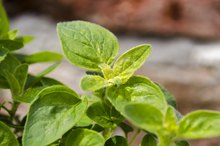Breastfeeding & Food Poisoning
Food poisoning results from eating food contaminated with harmful bacteria or toxins and can cause vomiting, diarrhea and abdominal cramps. It’s no fun caring for a baby when you’re sick, but breastfeeding moms can continue to breastfeed during a bout of food poisoning, with certain precautions 1.
If you are experiencing serious medical symptoms, seek emergency treatment immediately.
About Food Poisoning
Food poisoning occurs when you eat food contaminated with bacteria or toxins. Botulism (Clostridium botulinum), listeriosis (listeria), salmonella, shigella, ciguatera and E. coli are among the toxins and bacteria responsible for the unpleasant symptoms of food poisoning.
Breastfeeding and Food Poisoning
Can You Eat Raw Eggs While Breastfeeding?
Learn More
As long as your food poisoning symptoms are limited to the intestinal tract, the bacteria won’t enter your breast milk, so breastfeeding poses no risk at all to your baby 1. In fact, you should nurse your as regularly as possible while you're sick to maintain your milk supply. Abruptly reducing or stopping breastfeeding can cause painful engorgement for you and deprive your baby of a prime source of comfort, nutrition and antibodies that protect him from becoming ill himself 1.
Treatment
The goal of treatment for food poisoning is to help you feel better and avoid dehydration. This is especially important for breastfeeding mothers, whose fluid needs are already increased by milk production and who need to be physically comfortable enough to continue nursing 1.
Drink non-caffeinated, non-dairy beverages to replace fluids lost from diarrhea and vomiting. If you have diarrhea, you should avoid solid foods and dairy products until it passes.
If you are unable to drink fluids due to nausea or vomiting, you may need intravenous fluids and should call your doctor. You should also seek medical attention if you’ve had diarrhea for more than two days, have a fever over 101 degrees or notice blood in your stools.
- The goal of treatment for food poisoning is to help you feel better and avoid dehydration.
- If you are unable to drink fluids due to nausea or vomiting, you may need intravenous fluids and should call your doctor.
Prevention
Can Taking Acidophilus Help Prevent Stomach Flu?
Learn More
While you’re sick, wash your hands frequently to avoid infecting others. Improper or unhygienic food handling can cause or spread food poisoning. Ideally, you’ll be able to avoid handling food while you’re sick, but that may not be possible if you’re caring for your baby or older children. Be especially conscientious about hand-washing before preparing or handling food, and before breastfeeding your baby 1.
- While you’re sick, wash your hands frequently to avoid infecting others.
- Ideally, you’ll be able to avoid handling food while you’re sick, but that may not be possible if you’re caring for your baby or older children.
Considerations
In some rare cases of food poisoning, your doctor may prescribe antibiotics. Tell your physician that you’re breastfeeding and ensure that the antibiotic you’re prescribed is compatible 1. Many antibiotics are considered safe for breastfeeding babies 1.
Some of the bacteria that cause food poisoning can be spread through airborne transmission or direct contact. If you’ve been infected with one of these bacteria, your baby could be at risk of infection. Careful hand-washing is one of the best ways to prevent transmission from you to your baby.
- In some rare cases of food poisoning, your doctor may prescribe antibiotics.
Related Articles
References
- Breastfeeding.com: Answer Center
- Centers for Disease Control and Prevention. (2019). Foodborne Illnesses and Germs.
- Cdc.gov. x. Burden of Foodborne Illness: Findings | Estimates of Foodborne Illness | CDC. Published 2018
- Cdc.gov.. Burden of Foodborne Illness: Findings | Estimates of Foodborne Illness | CDC. Published April 2019.
- Papaconstantinou HT, Thomas JS. Bacterial colitis. Clin Colon Rectal Surg. 2007;20(1):18–27. doi:10.1055/s-2007-970196
- Sobel J. Botulism. Clin Infect Dis. 2005;41(8):1167-73. doi:10.1086/444507
- Food Poisoning Symptoms. Centers for Disease Control and Prevention. Published October 11, 2019.
- Bintsis T. Foodborne pathogens. AIMS Microbiol. 2017;3(3):529–563. Published 2017 Jun 29. doi:10.3934/microbiol.2017.3.529
- Chris A. Norwalk-like viruses: when the runs can slow you down [published correction appears in CMAJ. 2003 Feb 18;168(4):400]. CMAJ. 2003;168(1):64–65. PMID: 12515788
- Pinchuk IV, Beswick EJ, Reyes VE. Staphylococcal enterotoxins. Toxins (Basel). 2010;2(8):2177–2197. doi:10.3390/toxins2082177
- Humphries RM, Linscott AJ. Laboratory diagnosis of bacterial gastroenteritis. Clin Microbiol Rev. 2015;28(1):3–31. doi:10.1128/CMR.00073-14
- Dekker JP, Frank KM. Salmonella, Shigella, and yersinia. Clin Lab Med. 2015;35(2):225–246. doi:10.1016/j.cll.2015.02.002
- Arendt S, Rajagopal L, Strohbehn C, Stokes N, Meyer J, Mandernach S. Reporting of foodborne illness by U.S. consumers and healthcare professionals. Int J Environ Res Public Health. 2013;10(8):3684–3714. Published 2013 Aug 19. doi:10.3390/ijerph10083684
- FDA. Are You Storing Food Safely? U.S. Food and Drug Administration. Published June 4, 2016.
- Public Affairs. Recalls and Outbreaks. FoodSafety.gov. Published November 21, 2019.
- Lund BM. Microbiological Food Safety for Vulnerable People. Int J Environ Res Public Health. 2015;12(8):10117–10132. Published 2015 Aug 21. doi:10.3390/ijerph120810117
- Smith JK, Burns S, Cunningham S, Freeman J, McLellan A, McWilliam K. The hazards of honey: infantile botulism. BMJ Case Rep. 2010;2010:bcr0520103038. Published 2010 Sep 29. doi:10.1136/bcr.05.2010.3038
- Krugman's Infectious Diseases of Children, 11th edition. Philadelphia, PA: 2004.
Resources
Writer Bio
Shannon Thorn began writing and editing in 1990. She received a Roy H. Park Fellowship for graduate study in medical journalism at University of North Carolina at Chapel Hill. Since 2004, she has focused primarily on editing educational materials for health professionals. Thorn holds a Master of Science in speech-language pathology from UNC-Chapel Hill and is a practicing speech-language pathologist.








